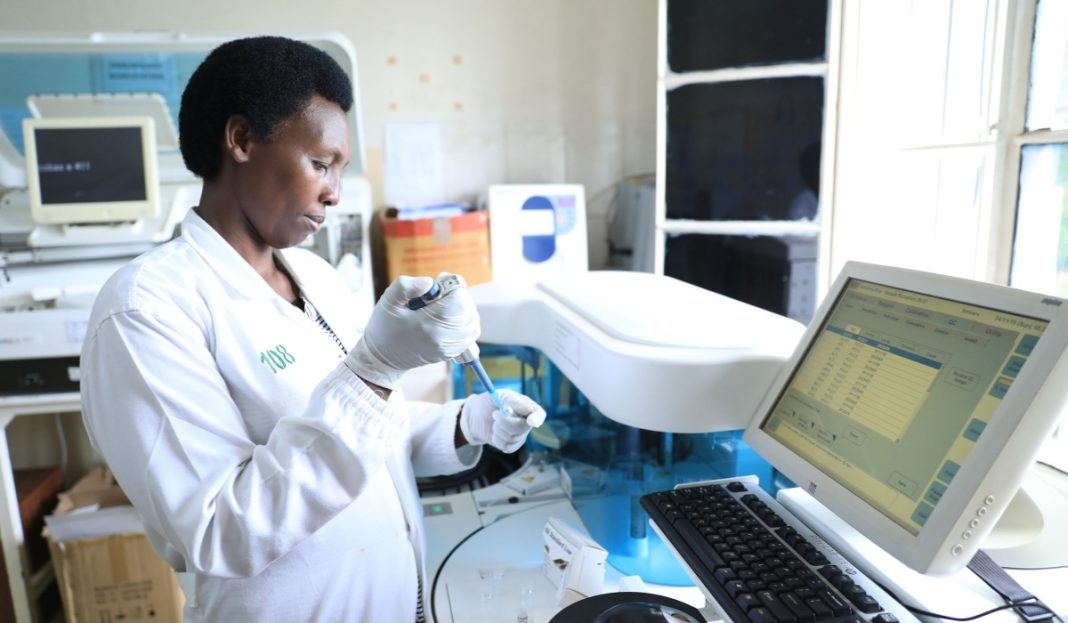The Rwanda Forensic Institute (RFI) is set to acquire modern forensic laboratory equipment worth Rwf34.5 billion in a bold move aimed at securing ISO 25017 accreditation and conducting scientific analysis of evidence for judicial purposes.
Appearing virtually before the parliamentary Committee on State Budget and Patrimony on Friday, May 9, Minister of Justice Emmanuel Ugirashebuja said the investment is critical to enhance the institute’s capacity and ensure accurate, timely evidence analysis in criminal investigations.
“We are gathering Rwf34.5 billion to purchase advanced forensic laboratory machines by 2029,” Ugirashebuja told MPs.
“This will significantly improve service delivery and support our journey toward ISO 25017 accreditation.”
The minister added that as of today, Rwf1.4 billion had already been spent on the procurement of existing lab equipment.
“Beyond high-tech machines, RFI is also planning to purchase specialized reagents and chemicals used in forensic analysis in the 2025/2026 fiscal year at a cost of Rwf1.7 billion,” he said.
“This follows a similar initiative in the 2024/2025 budget, where Rwf836 million was allocated, and Rwf653 million had been spent so far, marking a 78% execution rate,” he explained.
Among other investments already made, he mentioned the acquisition of vehicles used by Integrated One-Stop Centers (IOSCs), costing Rwf509 million.
The institute also spent Rwf395 million to cover scientific evidence costs, and Rwf2.3 billion on intelligence and counter-terrorism investigations.
Looking ahead, he added that the institute projects that its financial needs will continue to grow, requiring Rwf5.2 billion in 2025/2026, and Rwf6.5 billion for each of the two subsequent years. All planned projects are expected to be finalized by 2028/2029.
As Rwanda aspires to global forensic standards, Minister Ugirashebuja emphasized the pressing need for expanded infrastructure. He noted that the Kacyiru-based RFI currently operates in a 3,001 square meter facility, but needs at least 22,000 square meters to meet operational demands and attain ISO 17025 accreditation. The government is exploring options to construct, purchase, or lease a new facility, he said.
ISO/IEC 17025 accreditation for forensic testing laboratories establishes international standards for the competence of these labs. It ensures their ability to provide accurate and reliable results through a quality management system, demonstrating their competence, impartiality, and consistent operation.
“We used to send DNA samples abroad, particularly to Germany and results would take up to a year. It was costly and inefficient. Today, Rwanda is not only self-reliant in DNA testing but is also providing these services to over 10 African countries,” the Minister noted.
Established in 2016 as the Rwanda Forensic Laboratory and later renamed the Rwanda Forensic Institute, the RFI operates under the Ministry of Justice. It is the country’s sole provider of forensic and advisory services to law enforcement agencies and has rapidly gained regional recognition.
According to the Ministry of Justice, thanks to this progress, Rwanda has signed forensic cooperation agreements with countries including South Sudan, Nigeria, and Seychelles and the African Forensic Science Academy (AFSA), the first formally registered academy of its kind on the continent is now headquartered in Rwanda.
“As RFI deepens its capabilities and scales its services, Rwanda’s justice system stands to benefit from faster case resolutions, stronger evidence integrity, and growing influence in continental forensic science standards,” the minister said.



